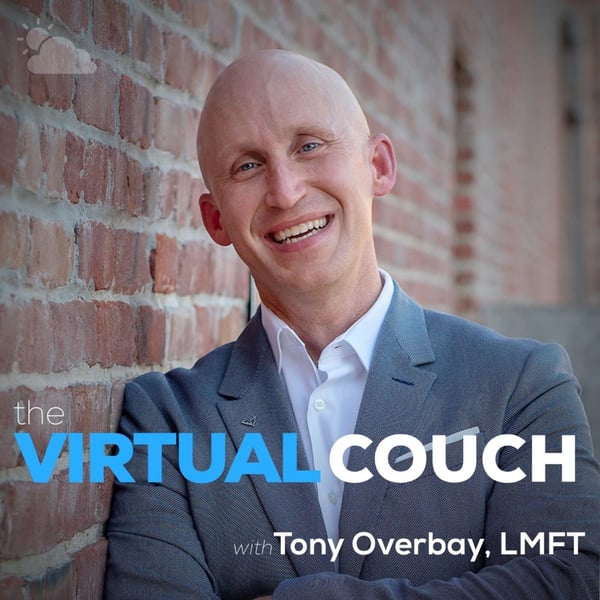How to Improve Your Marriage in 45 Minutes or Less - Understanding Influence vs. Control
The Virtual Couch
Tony Overbay LMFT
5 • 643 Ratings
🗓️ 27 April 2022
⏱️ 44 minutes
🧾️ Download transcript
Summary
Transcript
Click on a timestamp to play from that location
| 0:00.0 | In Dr. Russ Harris' book, The Happiness Trap, he says, I'm guessing you've got a pet donkey to help you carry your goods to the marketplace, unless you've upgraded to a camel. |
| 0:09.5 | Now, what's the best way to motivate your donkey? |
| 0:12.0 | To whip it with a stick or to offer it a carrot? |
| 0:15.0 | Now, both methods will get your donkey to carry the load for you, but over time, the donkey that is mainly motivated by whipping |
| 0:21.3 | will get more and more miserable, battered, and bruised, whereas the donkey motivated by carrots |
| 0:26.9 | will be healthy and content. And he adds, we'll have really good night vision. Now, as it happens, |
| 0:32.5 | humans have a lot in common with donkeys, and he says some more than others, and unfortunately, |
| 0:36.6 | when we try to motivate other humans to behave the way that we want, we often use far too much stick and nowhere |
| 0:43.6 | near enough of the carrot. The stick takes many forms. It can include criticizing, judging, |
| 0:49.1 | demanding, insulting, threatening, or intimidating. And it often involves sharing or blaming or evaluating the other |
| 0:56.1 | person negatively or speaking in harsh words. And then he goes on to say that it also frequently |
| 1:01.3 | involves deliberately withdrawing things that we know the other person wants, such as affection |
| 1:06.2 | or caring, warmth, kindness, gratitude, company, or even just someone to listen. |
| 1:12.7 | And he says the technical psychobabble jargon term for using the stick to motivate others is called coercion. |
| 1:19.7 | We all have a natural tendency to rely on coercion because the fact is it typically works. |
| 1:26.2 | Very often when we use coercion with others, we get our needs met. |
| 1:30.0 | They do what we want them to do. But what effect does coercion have in the long term? How does it |
| 1:34.9 | affect your relationship with the other person? Whether it's your friend, your child, your partner, |
| 1:39.0 | your employee. And he says the research on this is clear. The more we rely on coercion, the worse the relationship |
| 1:45.7 | gets. The more coercive the parent, the more stressed and unhappy their child. The more coercive |
| 1:51.9 | the manager, the more stressed and depressed their employees. The more coercive the spouse, |
| 1:57.3 | the worse the condition of the marriage. So just as big sticks make donkeys sick and miserable, |
... |
Please login to see the full transcript.
Disclaimer: The podcast and artwork embedded on this page are from Tony Overbay LMFT, and are the property of its owner and not affiliated with or endorsed by Tapesearch.
Generated transcripts are the property of Tony Overbay LMFT and are distributed freely under the Fair Use doctrine. Transcripts generated by Tapesearch are not guaranteed to be accurate.
Copyright © Tapesearch 2025.

